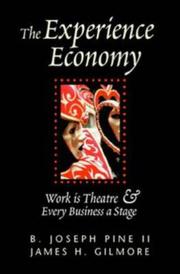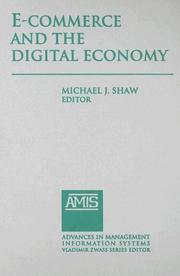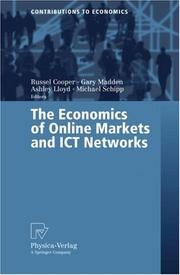| Listing 1 - 10 of 37 | << page >> |
Sort by
|
Book
ISBN: 9264239952 9789264239951 Year: 1993 Volume: 1
Abstract | Keywords | Export | Availability | Bookmark
 Loading...
Loading...Choose an application
- Reference Manager
- EndNote
- RefWorks (Direct export to RefWorks)
AA / International- internationaal --- 380.50 --- Structuur en organisatie van de handel (algemeenheden). --- Importations --- Commerce captif --- Commerce international. --- Entreprises multinationales --- Exportations --- Structuur en organisatie van de handel (algemeenheden) --- Entreprises multinationales - Etats-Unis --- Entreprises multinationales - Japon --- Exportations - Etats-Unis --- Exportations - Japon --- Importations - Etats-Unis --- Importations - Japon
Book
ISBN: 9789052618777 Year: 2011 Publisher: Den Haag Academic Service
Abstract | Keywords | Export | Availability | Bookmark
 Loading...
Loading...Choose an application
- Reference Manager
- EndNote
- RefWorks (Direct export to RefWorks)
Winkels kennen zware tijden: recessie, lokale wetgeving, parkeerproblemen, internetverkopenen de sterke macht van leveranciers. Kopen op internet, 24/7, is een volwaardigalternatief geworden voor de lokale winkel met strikte openingstijden en een beperkt assortiment.Is er nog wel een toekomst voor winkels ? Welke ontwikkelingen volgen elkaarop en hoe zijn deze te vertalen naar interessante Business Models ?Cor Molenaar analyseert de strijd, de gevaren, maar beschrijft ook de talloze kansen enmogelijkheden waarmee de retail het tij kan keren. Hij behandelt het nieuwe koopgedragvan consumenten (het nieuwe winkelen), de evolutie van de retail (hoe het was, hoe hetis en hoe het moet worden) en laat zien hoe de toekomst voor de winkel er daadwerkelijkuit gaat zien.Winkels moeten anders worden, opnieuw hun toegevoegde waarde gaan bepalen en opeen andere manier samenwerken met leveranciers en klanten om te overleven. Vaak wordteen webshop als de oplossing gezien, maar is dat echt zo ?Ook op internet gaat er nog veel veranderen. Veel webwinkels zullen verdwijnen of eenkwijnend bestaan hebben, alleen de grote aanbieders en webwinkels die optimaal gebruikmaken van de kansen van internet zullen overleven.Bron : http://www.bol.com
Firms and enterprises --- business marketing --- Distribution strategy --- Marketing ; detailhandel --- Klantenbinding --- E-commerce --- Consumentenedrag --- 380.50 --- 381.2 --- 381.50 --- 381.56 --- AA / International- internationaal --- 339.1 --- retailmarketing --- webwinkel --- Structuur en organisatie van de handel (algemeenheden). --- Plaats waar de handel wordt gedreven. --- Kleinhandel: algemeenheden. --- Rechtstreekse verkoop aan de verbruiker. --- algemene handelsvraagstukken --- Structuur en organisatie van de handel (algemeenheden) --- Plaats waar de handel wordt gedreven --- Kleinhandel: algemeenheden --- Rechtstreekse verkoop aan de verbruiker --- Detailhandel --- Winkelformules --- Internet --- Koopgedrag --- Retailmarketing --- Distributiekanalen --- Winkelformule --- Consumentengedrag --- Distributiekanaal

ISBN: 0875848192 9780875848198 Year: 1999 Publisher: Boston Harvard business school press
Abstract | Keywords | Export | Availability | Bookmark
 Loading...
Loading...Choose an application
- Reference Manager
- EndNote
- RefWorks (Direct export to RefWorks)
- If you charge for stuff, then you are in the commodity business. - If you charge for tangible things, then you are in the goods business. - If you charge for the activities you perform, then you are in the service business. - If you charge for the time customers spend with you, then and only then are you in the experience business. We are on the threshold, say authors Pine and Gilmore, of the Experience Economy, a new economic era in which all businesses must orchestrate memorable events for their customers. Every Business a Stage offers a creative, highly original, and yet eminently practical strategy for companies to script and stage the experiences that will transform the value of what they produce. From America Online to Walt Disney, the authors draw from a rich and varied mix of examples that showcase businesses in the midst of creating personal experiences for both consumers and businesses. The authors urge managers to look beyond traditional pricing factors like time and cost, and consider charging for the value of the transformation that an experience offers. Goods and services, say Pine and Gilmore, are no longer enough. Experiences and transformations are the basis for future economic growth, and Every Business a Stage is the script from which managers can begin to direct their own transformations.
Production management --- CRM (Customer Relationship Management) --- klantentevredenheid --- productmanagement --- productiemanagement --- Product management --- Diversification in industry --- Customer services --- #SBIB:309H250 --- AA / International- internationaal --- 380.50 --- 650 --- Customer service --- Service, Customer --- Service (in industry) --- Services, Customer --- Technical service --- Customer relations --- Industrial diversification --- Product diversification --- Input-output analysis --- Barriers to entry (Industrial organization) --- Multiproduct firms --- Brand management --- Management, Product --- Marketing --- Interne en externe communicatie: algemene werken --- Structuur en organisatie van de handel (algemeenheden). --- Theorieën en grondbeginselen. Management. --- Management --- Customer services. --- Diversification in industry. --- Product management. --- Produits commerciaux --- Diversification (Economie politique) --- Service à la clientèle --- Gestion --- Structuur en organisatie van de handel (algemeenheden) --- Theorieën en grondbeginselen. Management
Book
ISBN: 9264255125 9789264255128 Year: 1997 Publisher: Paris : OCDE,
Abstract | Keywords | Export | Availability | Bookmark
 Loading...
Loading...Choose an application
- Reference Manager
- EndNote
- RefWorks (Direct export to RefWorks)
Electronic commerce --- Commerce électronique --- Government policy --- Politique gouvernementale --- commerce --- technologie --- gouvernement --- AA / International- internationaal --- 339.324 --- 380.52 --- 381.56 --- 380.50 --- 384.7 --- handel --- regering --- Bescherming van de verbruiker en politiek van het verbruik. --- Interventie van de overheid in de handel. --- Rechtstreekse verkoop aan de verbruiker. --- Structuur en organisatie van de handel (algemeenheden). --- Tele-informatie. Datatransmissie. --- Commerce électronique --- Bescherming van de verbruiker en politiek van het verbruik --- Interventie van de overheid in de handel --- Rechtstreekse verkoop aan de verbruiker --- Structuur en organisatie van de handel (algemeenheden) --- Tele-informatie. Datatransmissie

ISBN: 0765611503 1317472705 1315705052 0765620073 1138681318 9780765620071 9780765611505 9781138681316 9781315705057 9781317472681 9781317472698 1317472691 Year: 2015 Publisher: Abingdon, Oxon : Routledge,
Abstract | Keywords | Export | Availability | Bookmark
 Loading...
Loading...Choose an application
- Reference Manager
- EndNote
- RefWorks (Direct export to RefWorks)
Divided into four parts, this book offers a state-of-the-art survey of information systems research on electronic commerce. It provides the framework for understanding the business trends, emerging opportunities, and barriers to overcome in the rapid developments taking place in electronic business and the digital economy.
AA / International- internationaal --- 381.56 --- 380.50 --- 381.0 --- 384.7 --- Rechtstreekse verkoop aan de verbruiker. --- Structuur en organisatie van de handel (algemeenheden). --- Binnenlandse handel: algemeenheden. --- Tele-informatie. Datatransmissie. --- Electronic commerce. --- Management information systems. --- Commerce --- Business & Economics --- Marketing & Sales --- Data processing. --- Trade --- Cybercommerce --- E-business --- E-commerce --- E-tailing --- eBusiness --- eCommerce --- Electronic business --- Internet commerce --- Internet retailing --- Online commerce --- Web retailing --- Economics --- Business --- Transportation --- Information superhighway --- Rechtstreekse verkoop aan de verbruiker --- Structuur en organisatie van de handel (algemeenheden) --- Binnenlandse handel: algemeenheden --- Tele-informatie. Datatransmissie --- Traffic (Commerce) --- Merchants

ISBN: 0691124000 1306150019 0691113556 1400850703 9780691113555 Year: 2003 Publisher: Princeton, NJ : Princeton University Press,
Abstract | Keywords | Export | Availability | Bookmark
 Loading...
Loading...Choose an application
- Reference Manager
- EndNote
- RefWorks (Direct export to RefWorks)
Nowhere has the divide between advocates and critics of globalization been more striking than in debates over free trade and the environment. And yet the literature on the subject is high on rhetoric and low on results. This book is the first to systematically investigate the subject using both economic theory and empirical analysis. Brian Copeland and Scott Taylor establish a powerful theoretical framework for examining the impact of international trade on local pollution levels, and use it to offer a uniquely integrated treatment of the links between economic growth, liberalized trade, and the environment. The results will surprise many. The authors set out the two leading theories linking international trade to environmental outcomes, develop the empirical implications, and examine their validity using data on measured sulfur dioxide concentrations from over 100 cities worldwide during the period from 1971 to 1986. The empirical results are provocative. For an average country in the sample, free trade is good for the environment. There is little evidence that developing countries will specialize in pollution-intensive products with further trade. In fact, the results suggest just the opposite: free trade will shift pollution-intensive goods production from poor countries with lax regulation to rich countries with tight regulation, thereby lowering world pollution. The results also suggest that pollution declines amid economic growth fueled by economy-wide technological progress but rises when growth is fueled by capital accumulation alone. Lucidly argued and authoritatively written, this book will provide students and researchers of international trade and environmental economics a more reliable way of thinking about this contentious issue, and the methodological tools with which to do so.
380.50 --- Structuur en organisatie van de handel (algemeenheden). --- Industrial economics --- Environmental protection. Environmental technology --- Foreign trade. International trade --- International trade --- Free trade --- Environmental policy --- Economic development --- Environmental aspects --- Economic aspects --- Social Sciences and Humanities. Economics --- Environmental aspects. --- Economic aspects. --- Environmental Economics. --- 351.2 --- 355 --- AA / International- internationaal --- Eco-development --- Ecodevelopment --- Openbare gezondheid. Milieubescherming. Milieuvervuiling --- Milieu --- Structuur en organisatie van de handel (algemeenheden) --- International trade - Environmental aspects --- Free trade - Environmental aspects --- Environmental policy - Economic aspects --- Economic development - Environmental aspects --- environnement --- pollution --- commerce international --- internationalisation de l'économie

ISSN: 14311933 ISBN: 1280717076 9786610717071 3790817058 379081704X Year: 2006 Publisher: Heidelberg : Physica-Verlag HD : Imprint: Physica,
Abstract | Keywords | Export | Availability | Bookmark
 Loading...
Loading...Choose an application
- Reference Manager
- EndNote
- RefWorks (Direct export to RefWorks)
Economic integration in general and Eastern enlargement of the European Union in particular created a wider European single market, thereby stimulating structural adjustment and economic specialization. This study analyzes trade specialization patterns in the enlarged European Union with a special focus on the new EU member states and the cohesion countries. From a sectoral trade point of view, empirical findings on revealed comparative advantage and a broader picture of competitiveness on the single market are presented. Furthermore, we analyze whether trade specialization patterns converge within the enlarged EU. Empirically identifying the determinants of successful trade specialization and taking into account the role of foreign direct investment, we offer new insights into the dynamics of trade, innovation and integration. Finally, policy options for the new EU member states are evaluated. Thus this work increases our understanding of the nature of international adjustment processes.
Commerce. --- European Union countries --- Trade --- Economics --- Business --- Transportation --- EU countries --- Euroland --- Europe --- International economics. --- International relations. --- European Economic Community lite. --- Macroeconomics. --- Econometrics. --- Economic policy. --- International Economics. --- International Relations. --- European Integration. --- Macroeconomics/Monetary Economics//Financial Economics. --- Economic Policy. --- Economic nationalism --- Economic planning --- National planning --- State planning --- Planning --- National security --- Social policy --- Economics, Mathematical --- Statistics --- Economic policy, Foreign --- Economic relations, Foreign --- Economics, International --- Foreign economic policy --- Foreign economic relations --- Interdependence of nations --- International economic policy --- International economics --- New international economic order --- Economic policy --- International relations --- Economic sanctions --- Coexistence --- Foreign affairs --- Foreign policy --- Foreign relations --- Global governance --- International affairs --- Peaceful coexistence --- World order --- Sovereignty --- World politics --- EEC / European Union - EU -Europese Unie - Union Européenne - UE --- 380.50 --- 381.0 --- Structuur en organisatie van de handel (algemeenheden). --- Binnenlandse handel: algemeenheden. --- European Economic Community literature. --- Structuur en organisatie van de handel (algemeenheden) --- Binnenlandse handel: algemeenheden

ISSN: 14311933 ISBN: 1280626038 9786610626038 3790817074 3790817066 Year: 2006 Publisher: Heidelberg : Physica-Verlag HD : Imprint: Physica,
Abstract | Keywords | Export | Availability | Bookmark
 Loading...
Loading...Choose an application
- Reference Manager
- EndNote
- RefWorks (Direct export to RefWorks)
Building new business on the most recent version of the Web is no longer a multi-million dollar undertaking. Start-up companies are leveraging a decade of innovation of technology, driven by entrepreneurs not financiers. Past lessons led to new service that provides a sustainable revenue base from which to refine service offerings and the definition of a viable business model. Within this context, the volume examines the economics of platform structure and firm competition within and between online markets, modern theoretical treatments of regulatory intervention in online markets and the consideration of forward-looking experimental analysis of demand for yet to be provided services. The volume is divided into three parts: innovation and competition in online markets; regulation, pricing and evaluation with real options; and empirical approaches to market analysis.
Electronic commerce --- Internet --- Industrial organization. --- Economic policy. --- Management. --- Industrial management. --- Information technology. --- Industrial Organization. --- R & D/Technology Policy. --- Innovation/Technology Management. --- Media Management. --- IT in Business. --- e-Commerce/e-business. --- Business administration --- Business enterprises --- Business management --- Corporate management --- Corporations --- Industrial administration --- Management, Industrial --- Rationalization of industry --- Scientific management --- Management --- Business --- Industrial organization --- Administration --- Industrial relations --- Organization --- Economic nationalism --- Economic planning --- National planning --- State planning --- Economics --- Planning --- National security --- Social policy --- IT (Information technology) --- Technology --- Telematics --- Information superhighway --- Knowledge management --- Industries --- Industrial concentration --- Industrial management --- Industrial sociology --- AA / International- internationaal --- 381.0 --- 380.50 --- 303.8 --- Binnenlandse handel: algemeenheden. --- Structuur en organisatie van de handel (algemeenheden). --- Econometrische behandeling van een onderwerp. --- Business—Data processing. --- E-commerce. --- Cybercommerce --- E-business --- E-commerce --- E-tailing --- eBusiness --- eCommerce --- Electronic business --- Internet commerce --- Internet retailing --- Online commerce --- Web retailing --- Commerce --- Binnenlandse handel: algemeenheden --- Structuur en organisatie van de handel (algemeenheden) --- Econometrische behandeling van een onderwerp
Book
ISBN: 9782070143580 2070143589 Year: 2014 Publisher: Paris Gallimard
Abstract | Keywords | Export | Availability | Bookmark
 Loading...
Loading...Choose an application
- Reference Manager
- EndNote
- RefWorks (Direct export to RefWorks)
Le monde actuel vit un paradoxe inouï. D'un côté, la cause semble entendue : il est plongé dans la crise par les comportements erratiques des marchés financiers. De l'autre, des millions d'êtres miséreux rêvent d'avoir accès au marché, au heu où, à la ville, ils pourraient troquer un petit rien contre un autre qui les tirerait du besoin. Le marché est une institution d'échange dont toute l'histoire est marquée par les dérèglements des usages qu'en firent et en feront des êtres cupides, intéressés par leur seul enrichissement à court terme et aux antipodes de la fiction chère à la théorie économique d'un individu mû par la seule rationalité éclairée. Le marché est aussi un moyen d'émancipation pour les damnés de la terre ou du travail sans qualité. C'est ce que rappelle Laurence Fontaine, historienne qui a le goût de l'archive et de l'anecdote exemplaire et la passion des allers-retours explicatifs entre hier et aujourd'hui. Ici, l'économie est à la hauteur de ces hommes et de ces femmes qui veulent améliorer leur sort par l'échange de menus biens ou de produits coûteux, dans la Lombardie ou le Paris du XVIIIe siècle, comme dans les provinces reculées du Bengale, de la Chine ou de la Mauritanie contemporains. Car le marché est facteur d'émancipation, notamment pour les femmes, qui accèdent à la responsabilité par l'échange, le commerce, la gestion du budget, voire le crédit. Émancipation des pauvres rivés à leur endettement, émancipation de la femme qui desserre l'étau du patriarcat, émancipation globale d'une économie informelle qui accède aux circuits monétaires régulés. Mais émancipation d'une extrême fragilité si elle ne s'accompagne pas de la reconnaissance pour chacun des mêmes droits que pour les autres. N'en déplaise aux repus de la consommation, cette reconnaissance passe aussi par la possibilité d'accéder aux mêmes biens : les exclus demandent une chose première parce qu'ils la savent essentielle pour tout le reste - un accès sans condition au marché
Economic order --- Informal sector (Economics) --- Capitalism --- Markets --- History --- Social aspects --- Économie de marché --- Économie politique --- Histoire économique --- Histoire --- AA / International- internationaal --- 380.50 --- 331.13 --- 330.02 --- 330.50 --- 331.162.1 --- 380.53 --- Structuur en organisatie van de handel (algemeenheden). --- Geschiedenis van de handel. --- Theorie van de economische kringloop. --- Economische en sociale stelsels: algemeenheden. --- Geschiedenis van de financiële markten. --- Analyse van de markten en verkooppolitiek. Handelsvooruitzichten. Marketing. --- Kreditmarkt. --- Markt. --- Unterprivilegierter. --- Philosophie. --- Histoire économique. --- Histoire. --- Structuur en organisatie van de handel (algemeenheden) --- Geschiedenis van de handel --- Theorie van de economische kringloop --- Economische en sociale stelsels: algemeenheden --- Geschiedenis van de financiële markten --- Analyse van de markten en verkooppolitiek. Handelsvooruitzichten. Marketing --- Capitalism - History --- Markets - Social aspects --- Markets - History
Book
ISBN: 0471103055 9780471103059 Year: 1970 Publisher: New York (N.Y.) Wiley & Sons
Abstract | Keywords | Export | Availability | Bookmark
 Loading...
Loading...Choose an application
- Reference Manager
- EndNote
- RefWorks (Direct export to RefWorks)
Domestic trade --- Marketing --- Prices --- -Prices --- -338.5 --- AA / International- internationaal --- US / United States of America - USA - Verenigde Staten - Etats Unis --- 331.100 --- 380.20 --- 380.50 --- 382.10 --- Commercial products --- Commodity prices --- Justum pretium --- Price theory --- Consumption (Economics) --- Cost --- Costs, Industrial --- Money --- Cost and standard of living --- Supply and demand --- Value --- Wages --- Willingness to pay --- Consumer goods --- Domestic marketing --- Retail marketing --- Retail trade --- Industrial management --- Aftermarkets --- Selling --- Prijsvorming. Prijskostenverhouding. Prijsbeweging. Prijsfluctuatie--macroeconomisch; prijsindex zie {336.748.12} --- Economische geschiedenis: algemeenheden. --- Prijstheorieën: algemeenheden. --- Structuur en organisatie van de handel (algemeenheden). --- Theorieën van internationale en interregionale handel: algemeenheden. Comparatieve voordelen. --- 338.5 Prijsvorming. Prijskostenverhouding. Prijsbeweging. Prijsfluctuatie--macroeconomisch; prijsindex zie {336.748.12} --- 338.5 --- Economische geschiedenis: algemeenheden --- Prijstheorieën: algemeenheden --- Structuur en organisatie van de handel (algemeenheden) --- Theorieën van internationale en interregionale handel: algemeenheden. Comparatieve voordelen --- Marketing - United States --- Prices - United States
| Listing 1 - 10 of 37 | << page >> |
Sort by
|

 Search
Search Feedback
Feedback About
About Help
Help News
News